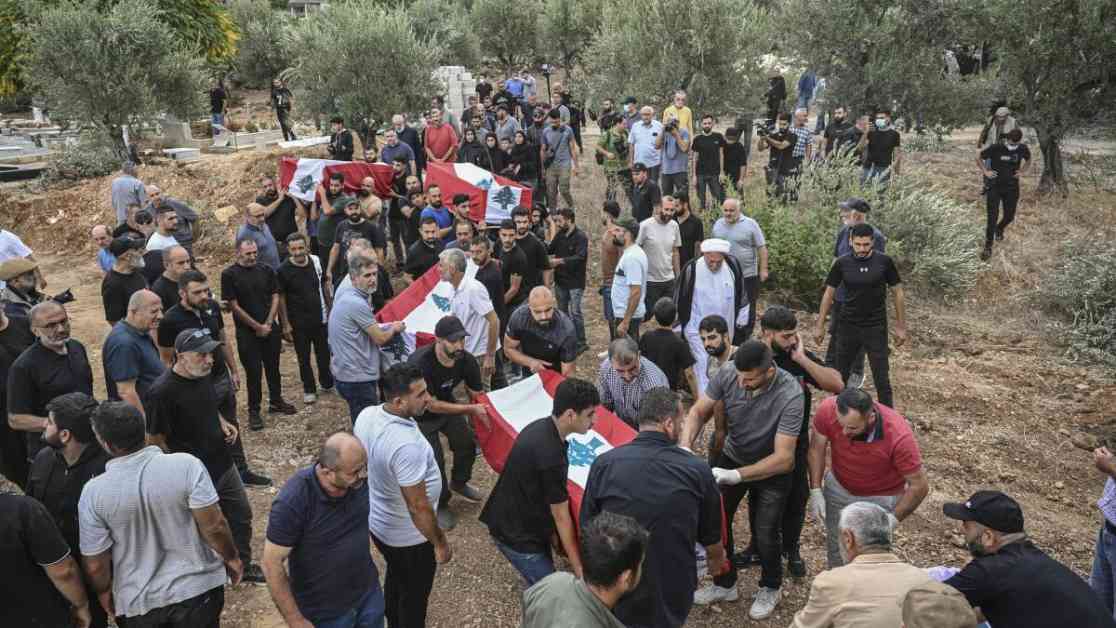Amid the ongoing Israeli strikes in Lebanon, sectarian tensions have been heightened in the country. The recent attack in the village of Aitou has left many residents fearful and on edge. Elie Alwan, who had welcomed displaced Shiites into his home, tragically lost 23 people when an Israeli missile struck his house. The aftermath of the strike has left many in the Christian villages worried about inadvertently sheltering individuals with connections to Hezbollah.
The strike has led to an atmosphere of fear and suspicion in Aitou, with residents concerned about the presence of displaced Shiites in their communities. The mukhtar of the village, Raymond Alwan, mentioned that some Shiite families have been asked to leave the area, while others have left voluntarily. The municipality is working with security services to vet newcomers and ensure they have no links to Hezbollah.
Raheel Dandash, a Shiite who had recently relocated to Aitou, expressed her shock and dismay at the attack. She emphasized that the family that was killed had no involvement in the conflict and were innocent civilians. The Israeli military has stated that they targeted a Hezbollah location but are reviewing claims of civilian casualties.
The ongoing conflict has displaced thousands of people in both northern Israel and southern Lebanon. The Israeli offensive has resulted in significant casualties and destruction, prompting concerns about the escalation of violence and the impact on civilian populations. The fear of a return to civil war lingers in Lebanon, with memories of past conflicts resurfacing in the current situation.
Peter Harling, a researcher, highlighted Israel’s strategy of exploiting sectarian tensions to further its objectives in Lebanon. However, the actions of the Israeli military have created a sense of rejection and fear among the Lebanese population. Despite the displacement and turmoil, there has been a remarkable lack of violence, indicating a strong aversion to civil strife in Lebanon.
Father Estephan Frangieh, who witnessed the aftermath of the strike in Aitou, expressed concerns about the deepening divisions and the message being sent by Israel. He emphasized the need to uphold moral and legal standards in times of conflict, condemning the targeting of civilians. The impact of the attack in Aitou is likely to have far-reaching consequences on displaced Shiites and host communities alike.
In the midst of the tragedy, Elie Alwan called for caution and vigilance among displaced individuals and their hosts. He urged those offering assistance to do so indirectly to prevent further harm to innocent civilians. As the search for survivors and victims continues, the people of Aitou grapple with the aftermath of the devastating strike and the implications for their community.
The unfolding events in Lebanon underscore the complex dynamics of conflict and sectarianism in the region. The need for dialogue, understanding, and compassion remains crucial in navigating the challenges posed by external interventions and internal divisions. As the Lebanese people strive to rebuild and heal from the trauma of war, the importance of unity and solidarity cannot be overstated.



























